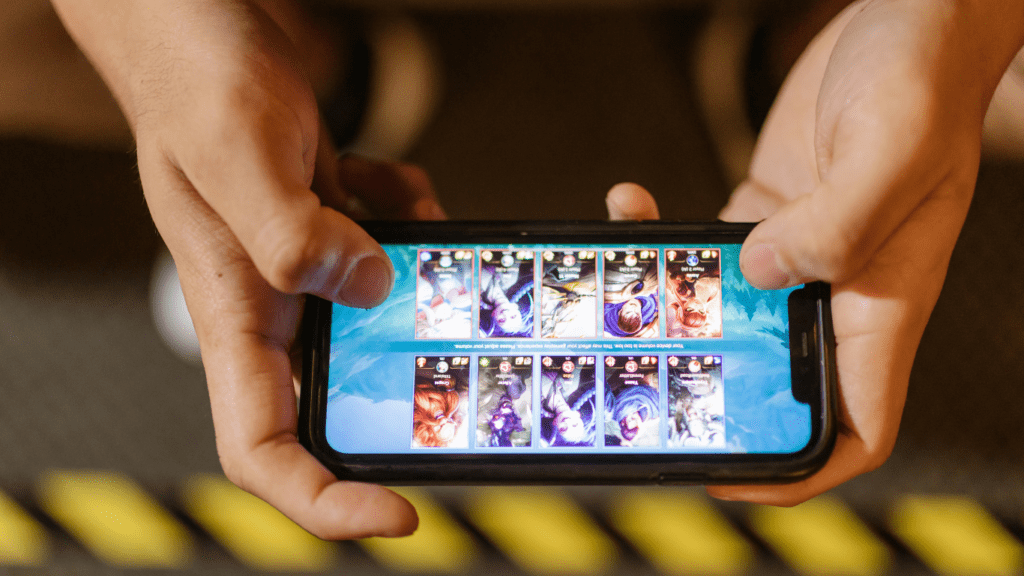While the spotlight often falls on elite players in high-stakes titles, the truth is more subtle: casual games, the ones you tap through while waiting in line or zoning out before bed, sharpen real cognitive foundations without overwhelming you.
The more you play, the more familiar those systems feel, and the better you get at reading the rhythm behind the randomness.
Inside the Skillset That Always Wins
Even in the most laid-back puzzle or strategy titles, you build mental discipline without even trying. Focus gets tighter, decisions get faster, and patterns start to show up whether you’re looking for them or not.
You train yourself to manage pressure, read the moment, and react with purpose, never panic. These games might look light on the surface, but the mechanics train something real—timing, pattern recognition, memory, and decision-making under a soft kind of pressure.
And that same quiet skillset applies just as much in card games like poker or blackjack, where reading the board and controlling your pace matter far more than chance.
Players seeking better results on platforms that reward patience can try options on ValueWalk. The choices available are some of the best online casinos in the sector, each with a wide range of payment methods, hundreds of games, great bonuses, and affordable minimum bets. Instead of chasing outcomes that never land, players take their chances with these platforms that actually make a difference.
The Cognitive Edge Behind the Controller
Over the past two decades, cognitive science has taken gaming seriously—not as a distraction, but as a tool for mental development. Multiple peer-reviewed studies have found that regular gameplay can strengthen key cognitive functions.
A meta-analysis published in Frontiers in Human Neuroscience found that individuals who play action-based video games for a few hours each week tend to show better visual attention, stronger working memory, and faster reaction times compared to non-gamers.
Another study from the University of Geneva reported that just 15 hours of gaming over four weeks improved sustained attention and cognitive flexibility in adults.
The effects are not limited to reflex-driven games either. Strategy-based and puzzle games have been shown to boost problem-solving skills, pattern recognition, and long-term planning.
In real terms, this translates into improved decision-making under pressure, faster data processing in high-stress situations, and better task-switching ability—skills with obvious benefits in daily life and professional environments.
There’s also evidence that these gains stick. A 2023 study in Nature Human Behaviour showed that older adults who engaged in consistent gaming over three months maintained improvements in memory recall and executive functioning well beyond the test period.
The data continues to show that, when approached with the right mindset, gaming isn’t just entertainment—it’s mental training.
Sharpening Focus Without Forcing It
In contrast to classic brain-training apps, casual games don’t ask you to try harder—they pull your attention naturally. That subtle pull, whether you’re matching tiles or solving jigsaw puzzles, trains your brain to stay on task without feeling strained.
Over time, this leads to better concentration spans and improved attention control. It’s not about discipline in the strict sense, but when you’re returning to these low-pressure challenges daily, your mind begins to stay sharper for longer stretches, even in non-gaming contexts.
It’s passive conditioning at its best: no grind, no pressure, just quietly building a stronger mental loop.
Why Mental Agility Still Wins
Casual gaming may not test you like high-speed shooters, but it builds a different kind of sharpness. Switching between levels, adapting to new mechanics, or recognizing changes in pacing—all these actions train cognitive flexibility.
That skill, often called mental agility, is linked to how easily you adapt in daily life, especially in unexpected or high-stress situations. It means thinking clearly when things don’t go as planned, or adjusting strategies when your first plan fails.
Developing this kind of flexibility through gameplay helps in-game, for sure, but more importantly, it influences how you handle complexity in work, relationships, and daily decisions.
Pattern Mastery and the Long Game
Most casual games are built on patterns—color, shape, timing, or score-based feedback. Learning how to spot, remember, and manipulate these patterns taps into a deeper layer of strategic thinking.
As experience accumulates, repetition strengthens neural pathways tied to recognition speed and prediction accuracy. You start to anticipate outcomes, read signals faster, and respond without overthinking.
That kind of brain training scales well, because whether you’re managing time, scanning for details, or analyzing a conversation, it’s still pattern work. So while it may look like play, it’s setting up deeper habits for staying mentally ready.
The Value of Repetition Without Burnout
By reducing cognitive load and increasing frequency, many casual games provide the ideal conditions for mental reinforcement. Quick, low-stakes engagement done consistently is one of the most effective ways to improve working memory and executive control.
You’re not chasing a high score—you’re training reliability. Repeating short cognitive tasks under slightly different conditions strengthens recall, decision pathways, and mental endurance.
More importantly, it avoids burnout. The pressure is low, the reward loop is tight, and the outcome is cumulative. Over time, these sessions start shaping how you think—not just how fast, but how clearly.
From Play to Everyday Decisions
The biggest benefit of building gaming skills through casual play might be how seamlessly they bleed into real life. Tasks like remembering appointments, adjusting plans, or catching details others miss all draw on the same cognitive functions that casual games strengthen.
When games train your brain to scan for information and stay composed during slight pressure, they’re indirectly refining how you handle daily challenges. That’s how casual play becomes cognitive conditioning—fluid, repeatable, and ready when needed.
Low-Stakes, High Retention
One overlooked strength of casual games is how well they support memory through gentle repetition. The relaxed pace allows information to sink in without resistance, which is ideal for strengthening recall.
Recent studies suggest that memory formed during low-stakes, routine tasks tends to be more durable over time, especially when tied to visual and spatial repetition—both common in casual games.
This type of reinforcement supports long-term retention without cognitive fatigue, making it a subtle but powerful mental habit. And like most habits, the benefits tend to show up when you’re not even thinking about them.


 Hilda Arenas, a key contributor at Your Gaming Colony, has significantly enriched the platform with her extensive knowledge and passion for video games. While not the founder, Hilda plays an integral role in shaping the site's content and community engagement. Her deep understanding of the gaming world and her dedication to quality have made her contributions invaluable to the platform.
Hilda's expertise is evident in the up-to-the-minute gaming news she helps deliver, ensuring that visitors are always informed about the latest industry developments. She is instrumental in producing high-quality, in-depth reviews that offer honest and detailed assessments of new releases, classic games, and everything in between. Her commitment to excellence ensures that the platform's content remains reliable and engaging.
Hilda Arenas, a key contributor at Your Gaming Colony, has significantly enriched the platform with her extensive knowledge and passion for video games. While not the founder, Hilda plays an integral role in shaping the site's content and community engagement. Her deep understanding of the gaming world and her dedication to quality have made her contributions invaluable to the platform.
Hilda's expertise is evident in the up-to-the-minute gaming news she helps deliver, ensuring that visitors are always informed about the latest industry developments. She is instrumental in producing high-quality, in-depth reviews that offer honest and detailed assessments of new releases, classic games, and everything in between. Her commitment to excellence ensures that the platform's content remains reliable and engaging.
